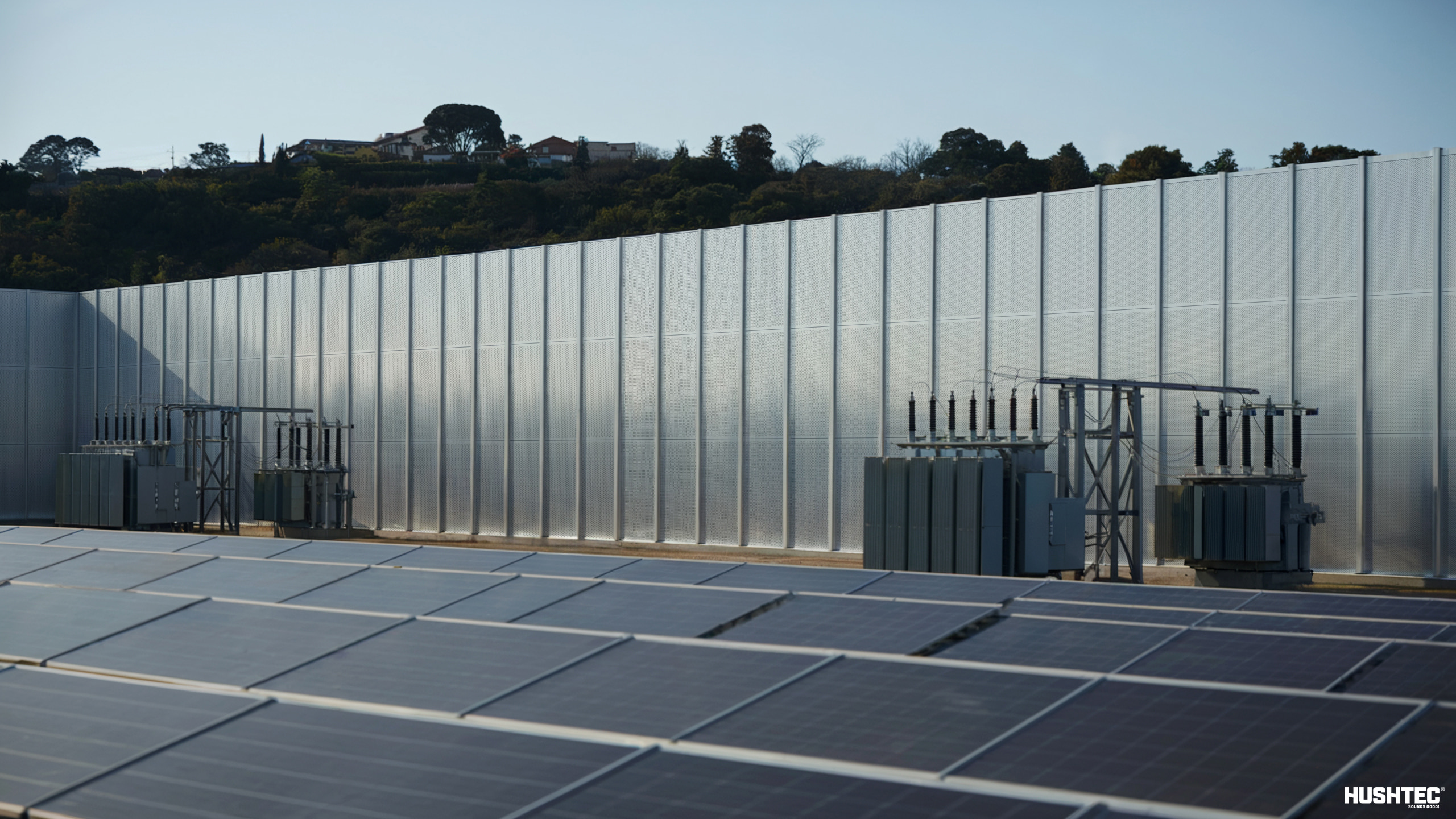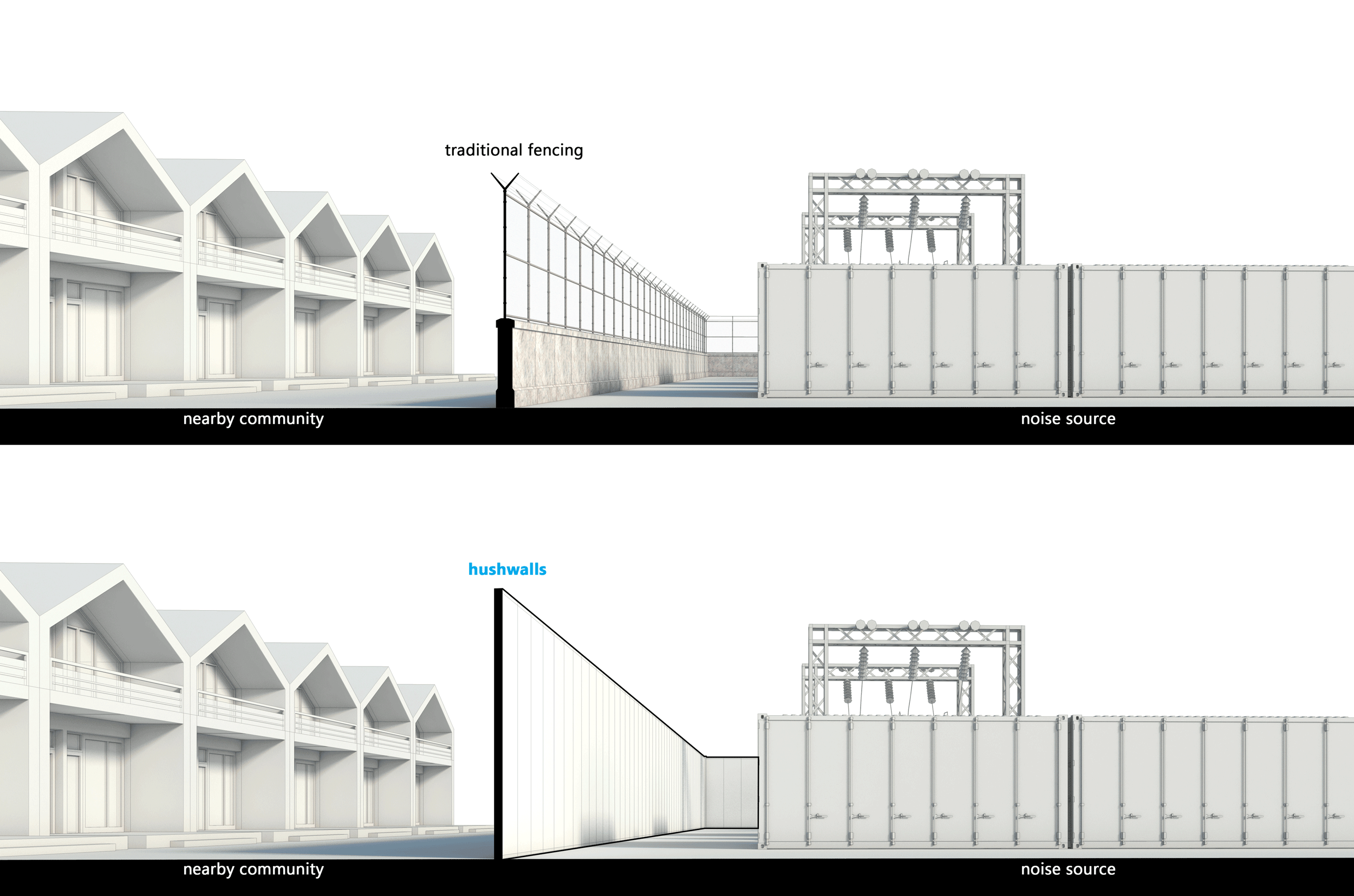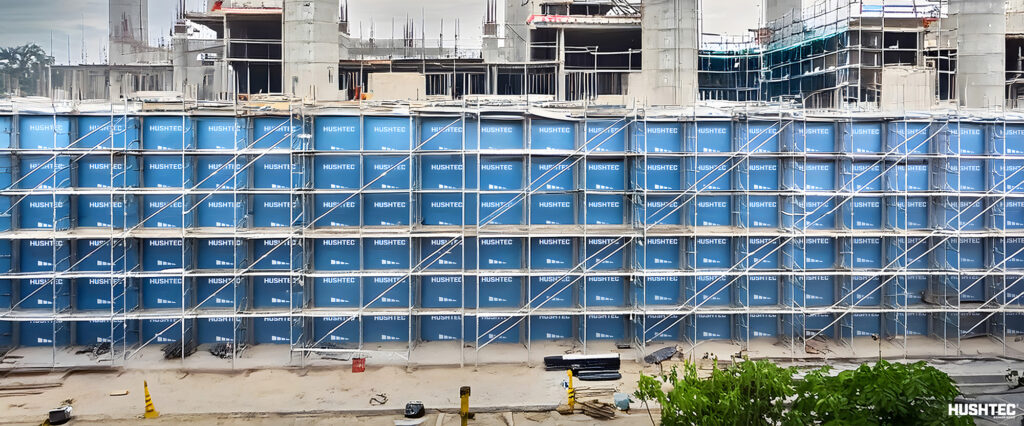Solar Farms Are Not as Silent as You Think
Solar farms are getting louder and the noise is becoming a hidden challenge as renewable energy expands. Although PV panels are silent, equipment like BESS and inverters generate low-frequency sound that causes compliance issues and community complaints.
As solar energy expands globally, a lesser-known issue is beginning to make noise—literally. Although photovoltaic (PV) panels are silent, solar farms and battery storage systems generate mechanical and low-frequency noise that can cause compliance issues and community complaints.
At Hushtec, we specialize in noise control solutions for solar farms, BESS (Battery Energy Storage Systems), and renewable energy infrastructure, helping you stay compliant and community-friendly from day one.

What’s Causing Solar Farm Noise at Sites?
Modern solar energy installations include more than just panels. Supporting equipment like:
- Inverters and transformers (produce humming or buzzing)
- Battery storage systems (with HVAC and cooling fans)
- Auxiliary equipment (generators, pumps, switchgear)
…can collectively produce noticeable environmental noise. The larger the installation, the greater the potential for non-compliance with local noise limits.
Solar Farm Noise Compliance: How Loud Is Too Loud?
Regulatory authorities across Australia and other countries set strict noise limits for energy developments—especially those located near residential or rural zones.
| Time of Day | Typical Noise Limit (LAeq) |
| Daytime | 45–55 dB |
| Nighttime | 35–45 dB |
| Site boundary in rural zones (night) | ≤ 40 dB |
United States
In the US, noise compliance is typically regulated at the state or county level, with reference to standards such as ANSI S12 guidelines or local zoning ordinances.
United Kingdom
In the UK, noise limits for renewable projects are assessed under BS 4142:2014+A1:2019 and the National Planning Policy Framework (NPPF).
Canada
In Canada, environmental noise from energy projects is regulated provincially, with common reference to CSA standards and provincial guidelines (e.g., Ontario MECP NPC-300).
Australia
In Australia, noise compliance is managed by state-level Environmental Protection Authorities (EPA), with standards such as the NSW Noise Policy for Industry and EPA Victoria guidelines.
Why Solar Farm Noise Matters

Uncontrolled noise from solar farms or battery storage facilities can:
- Disturb nearby residents, especially in quiet rural environments
- Reduce biodiversity, particularly among sensitive wildlife species
- Damage relationships with local councils and communities
- Jeopardize future renewable projects
As the push for decarbonization continues, noise is becoming a reputational and regulatory risk for developers.
How Hushtec Solves the Problem
At Hushtec, we offer bespoke acoustic solutions tailored to solar farms and BESS noise issues. Our team works directly with energy developers, consultants, and engineers to:
Conduct Acoustic Assessments
We model site-specific noise output using acoustic software to forecast impacts and identify areas of concern.
Design Custom Noise Mitigation Systems
This includes:
- BESS acoustic enclosures
- Inverter and transformer barriers
- HVAC attenuation systems
- Custom-engineered soundproofing panels
Install Modular, Durable Systems
All our noise control systems are designed for quick installation, high weather resistance, and scalability for future site expansion.
Support Compliance and Consent
We generate noise reports, modeling data, and mitigation documentation for councils and resource consent applications.

Proven Results: A BESS Noise Reduction Case Study
In a recent BESS project located near a rural neighborhood, our Hushtec acoustic enclosures reduced fan and HVAC noise by over 18 dB(A)—bringing site emissions well below the 40 dB LAeq night-time compliance limit. This allowed the client to move forward with development and maintain positive community relations.
Conclusion: Plan for Noise Now, Avoid Problems Later
If you’re planning or operating a solar farm or battery energy storage site, noise control should be a priority—not an afterthought. As regulatory scrutiny increases, Hushtec is here to help you design, build, and maintain compliant, quiet, and community-safe energy projects.





